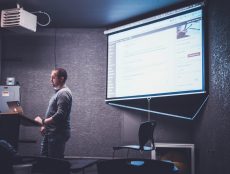
As previously reported on eLearning Inside, the Florida Virtual School (FLVS), a statewide and state-funded online school, has been having a bad year. This week, a series of new revelations came to the surface placing the school back on the defensive.
2018 in Review at the FLVS
First, FLVS admitted that it had experienced a massive data breach, and it appears as if the school was at fault. The personal data of more than 350,000 students was compromised.
Over the summer, FLVS faced another setback. In mid-August, the Orlando Sentinel reported that after several employee complaints, the school had sought guidance from, FordHarrison, a law firm, to investigate. This soon led t the resignation of Frank Kruppenbacher who had previously served as the organization’s general counsel.
In early September, eLearning Inside ran a story on Kruppenbacher’s departure and other recent events at FLVS. Immediately after the story ran, several people connected to FLVS contacted eLearning Inside to share additional information. Our subsequent investigation clarified the nature of the disputes between former employees and the school. During several of these interviews, other complaints and concerns, specifically about Kruppenbacher, were also raised, but at the time, no one was willing to go on the record with their complaints. This week, FordHarrison’s report on FLVS was finally released, and at least some of these complaints are now public.
Key Findings of the FordHarrison Report on the FLVS
According to the Orlando Sentinel, FordHarrison’s four-page report reveals a host of problems at FLVS. While the report does note that not all complaints could be verified, the findings are still alarming.
As reported in the Orlando Sentinel on December 11, “As the top attorney at the Florida Virtual School, Frank Kruppenbacher used school employees for ‘excessive’ work on his own ‘outside business activities.'” At least one anonymous individual who agreed to talk to eLearning Inside about FLVS in September 2018 said that he had observed Kruppenbacher making inappropriate comments about women staff on more than one occasion.
The Orlando Sentinel article reports that the FordHarrison investigation found that Kruppenbacher’s use of “boorish” and “gender-based comments” is something that “likely” occurred. The report further notes that had Kruppenbacher still been an employee, these actions could have led to his firing. The FordHarrison report also mentions several other potential conflicts of interests.
According to the Orlando Sentinel, the report alleges that Kruppenbacher misused school money to purchase “extravagant furnishings” for his office and failed to use his vacation time when he went on several multi-week trips to Asia for business unrelated to his role at the school.
Kruppenbacher’s Response
In response to the FordHarrison report, Kruppenbacher did admit that he had paid his daughter’s boyfriend for work but that he considered him to be fit for the job. He also admitted that two employees did perform work for his outside business, but the work was “voluntary” and he paid them out of pocket. Other allegations were denied by Kruppenbacher who told the Orlando Sentinel he suspects the allegations are a part of a “smear campaign” against him, likely launched in retaliation for his efforts to make strategic cuts at the school.
Whether or not Kruppenbacher is the victim of a smear campaign is unclear, but many former employees do have reason to feel disgruntled. As previously reported on eLearning Inside, in Spring 2018, a number of out-of-state employees received notice that they would only be able to continue working for FLVS if they moved back to Florida. Previously, these employees had been told they were free to work for FLVS from any location.
Feature image: Seth Schwiet, “Laptop in Close-up,” Unsplash.









No Comments